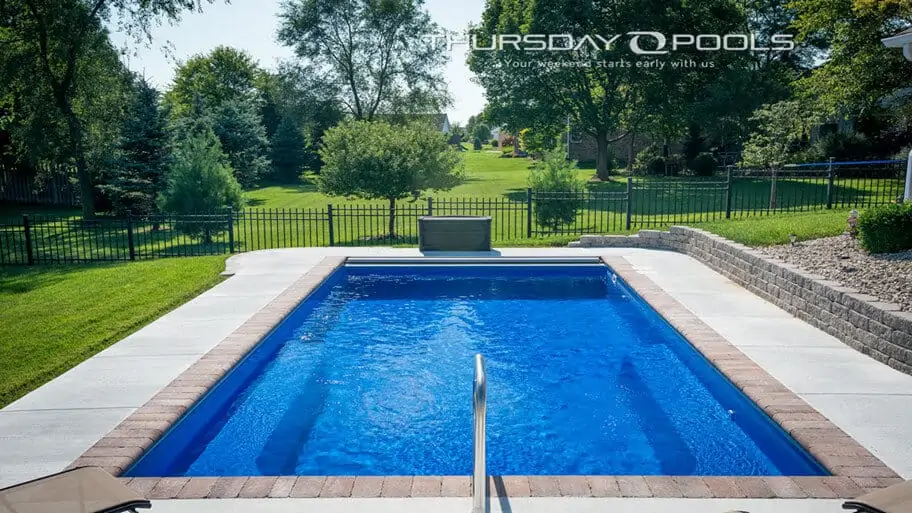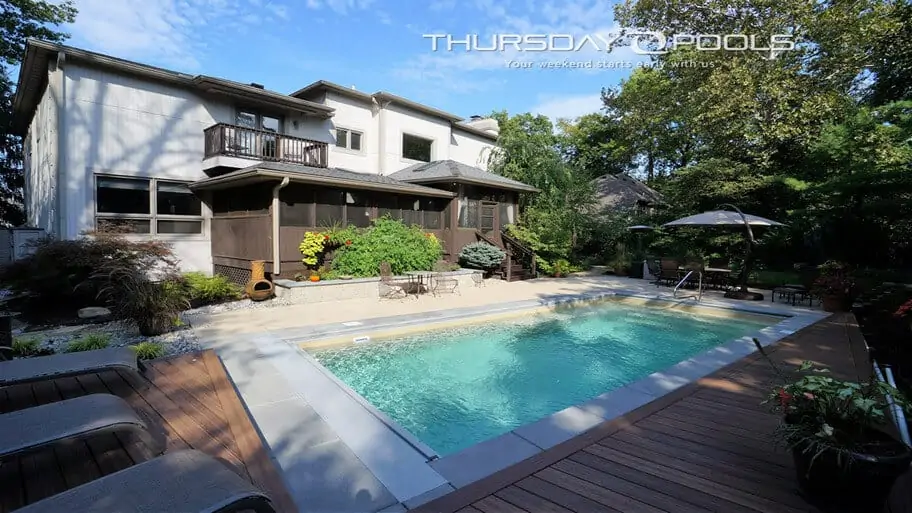One of the biggest fears of purchasing a swimming pool is the challenge of understanding how to properly maintain the pool chemistry. “Is there enough chlorine?” “Is there too much chlorine? “Why is my pool turning cloudy? Look, I completely understand the confusion and the internal struggle of keeping a swimming pool balanced.
Working with pool clients daily, in the Royal Pools service department and retail store. I know a lack of chlorine is one of the main issues that can lead to a plethora of water problems. When your swimming pool loses chlorine it leaves the opportunity for tons of things to go wrong, algae can bloom, bacteria can grow, and much more.
With that being said, we may potentially have a solution for you, an automated chlorine generator, aka a salt system! A salt system can assist with pool chemistry by feeding your pool chlorine daily without you doing a thing, but first, you should see if it is the right fit for you!
Today we are going to lay out how a saltwater pool works and how it could potentially help you. Then, to clear up the confusion we will discuss what the differences between a saltwater pool and a chlorine pool really are. To finish, we will review the pros and cons of a saltwater pool!
How does a saltwater pool work?
Swimming pools with a salt chlorine generator are also known as saltwater pools. Saltwater pools are equipped with an electronic device that is known as a salt chlorine generator or a salt cell. The salt cell is plumbed in just like a chlorine tablet feeder would be, directly after the pool heater so the chlorine can be directly introduced into the water after it has been filtered. Once the cell is wired, the appropriate amount of swimming pool salt is poured into the water according to the size of your swimming pool. Once the salt is completely dissolved in the water it will flow through the salt cell, then begins to go through a process of electrolysis separating the sodium and sending what is now chlorine directly into the water.
As long as the salt in the water is within the proper range, the cell will generate chlorine for you without you touching a thing.
Saltwater pools vs chlorine pools
So, what is the difference between a saltwater pool and a traditional chlorine pool? Well… actually, nothing!
Salt chlorine generators do nothing more than produce the chlorine for the pool instead of you actually having to handle it yourself. The only difference in the actual chemistry is that with a salt system, you will use more pH down. This is simply because the chlorine that is generated from a salt cell is sodium hypochlorite and the pH of sodium hypochlorite is about 11 – 13 ppm.
What are the pros and cons of a saltwater pool?
Pros
- Automated Chlorine Production – As long as the salt levels are correct in the pool the salt cell will create chlorine automatically, saving you time, and money and eliminating the need for a bunch of chemicals!
- Chemical Cost Savings- Without having to run to the pool store for chlorine anymore you can save some good money in the long run on granular shock, liquid chlorine, and chlorine tabs.
Cons
- Automated Chlorine Production – It is great to have a system that will eliminate a key step in weekly chemical maintenance, but it is both a blessing and a curse! It is very easy to forget about the production rate of chlorine on a day-to-day basis! Although the automation of chlorine production is AWESOME, the production rate of said chlorine still has to be manually adjusted to help prevent over-chlorination! Over-chlorination can damage the surfaces of liners, fiberglass finishes, and gunite pools by burning them and turning them white!
- Upfront Cost -The upfront cost of a salt system can be fairly pricey starting around $1,400.00 and maxing out around $4,200.00.
- Long-Term Cost – A salt cell has to be replaced every 3 – 5 years costing around $700 – $900. In between then the cell should be cleaned every 3 months making sure there is no scale build-up inside. If this cleaning has to be done by a professional it will cost anywhere between $125.00 – $150.00
Salt systems are one of the great automated systems for a swimming pool! It does come with a few good pros but also comes with a few cons! We can’t help you decide what is right for you and your family all we can do is lay out the facts and we hope that we did that for you today! So looking forward, at least you now know that there is an option to help ease some of the natural fear that comes with maintaining a pool!


